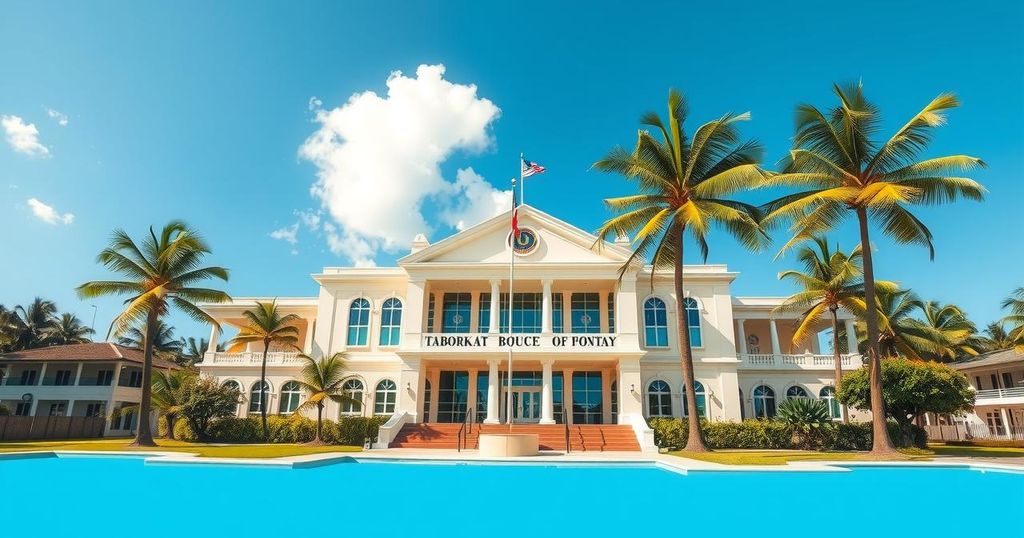Trinidad and Tobago Adopts US Terrorism Policy Against Venezuelan Gang Tren De Aragua
Trinidad and Tobago will adopt U.S. policy against the Venezuelan gang Tren De Aragua, designating it as a terrorist organization. Prime Minister Stuart Young confirmed the commitment, despite lacking evidence of the gang’s operations locally. Additionally, he refuted claims about registering Venezuelan migrants to vote in the upcoming elections, emphasizing humanitarian efforts and legal frameworks governing migrant rights.
The Government of Trinidad and Tobago has announced its decision to adopt the United States’ counter-terrorism policy targeting the Venezuelan gang known as Tren De Aragua. Prime Minister Stuart Young made this statement during a post-cabinet media conference in Port of Spain, following discussions with U.S. Secretary of State Marco Rubio on March 26 in Jamaica. Young emphasized the commitment to designate the gang as a terrorist organization, despite the lack of concrete evidence of their activities within Trinidad and Tobago.
Although there is no current evidence of Tren De Aragua’s operations in Trinidad and Tobago, the government plans to proactively classify the gang as a terrorist organization. Prime Minister Young stated that legal measures would be pursued, including presenting evidence in court regarding the gang’s activities. He highlighted the necessity of preemptive actions to ensure the government possesses the legal authority to respond effectively should the gang pose a threat in the future.
The Tren De Aragua gang has its origins in a notorious prison in Venezuela’s central state of Aragua, emerging more than a decade ago. The group has expanded its influence as millions of Venezuelans have fled the country. This gang has been implicated in criminal activities across various regions in the U.S. and Latin America, such as Peru and Colombia. Furthermore, Donald Trump classified Tren De Aragua as a terrorist organization, utilizing the 1798 Alien Enemies Act to deport individuals associated with the gang.
In a separate matter, Prime Minister Young refuted allegations that Venezuelan migrants are being registered by the Elections and Boundaries Commission (EBC) to vote in the upcoming general election. He clarified that such claims are misleading, asserting that the EBC and the government are not registering Venezuelans for electoral participation. Young reaffirmed that a previous policy established in 2019 maintained that registered migrants would not have residency rights.
The government extends the registration time for Venezuelan migrants as a humanitarian gesture, but Young clarified that this does not equate to an eligibility to vote. Although individuals naturalized through marriage to Trinidadian citizens may attain citizenship, the decision ultimately lies with immigration officers, who must evaluate individual cases thoroughly.
In conclusion, Trinidad and Tobago’s government is taking significant steps to enhance national security by adopting U.S. anti-terrorism policies against the Tren De Aragua gang. While the lack of evidence has been noted, proactive measures will be implemented to classify the gang as a terrorist organization. Furthermore, the Prime Minister has dismissed claims regarding Venezuelan migrant voting rights, clarifying existing legal frameworks that govern migrant status and participation in elections. The government’s ongoing humanitarian approach remains a focal point in managing Venezuelan migration.
Original Source: newsday.co.tt




Post Comment